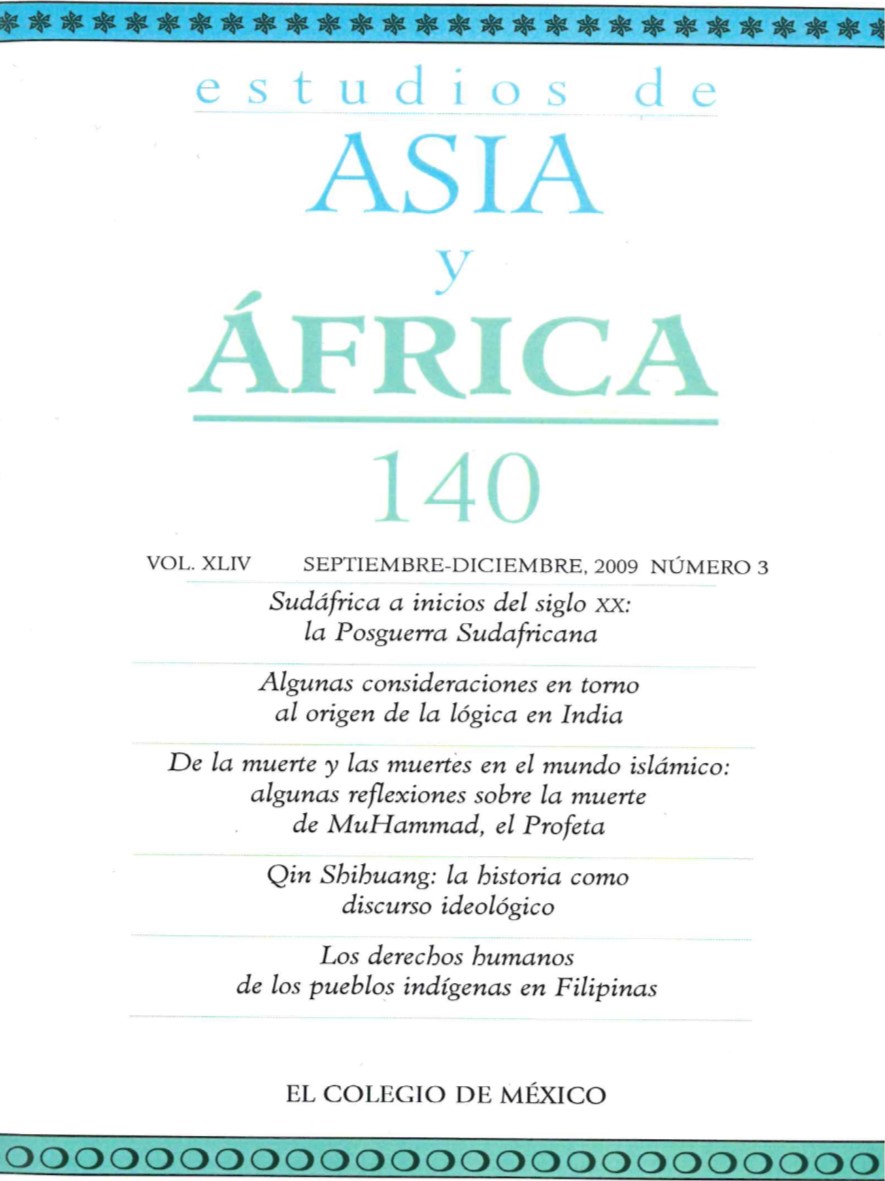Abstract
The role of History and its narrative discourse have been reevaluated during the last decades. According to Hayden White, a historian does not interpret History; he or she constructs History. This construction is made inside a culture, creating a story to justify ideological and social systems. In China, History has been used in this ideological way for centuries. This article analyses the treatment of the first emperor of the Qin Dynasty, Qin Shihuang, who succeeded in completing the unification of China after the turbulent Warring States Period. He was considered a terrible tyrant by adherents to the Confucianist ideology, but in the twentieth century, there was a new interpretation. Especially during the Cultural Revolution, the First Emperor was considered to have been a progressive character who fought against the exploiters. So a parallel between Qin Shihuang and Mao Zedong was made, showing the fighting between the two directives to emphasize the present lowering the past and use the past to criticize the present. In the time of the anti-Confucius and anti-Lin Biao campaign, the History of Qin Shihuang was used in an ideological and fallacious way. Apparently, after the regime of Deng Xiaoping, the historical discourse became more objective and Qin Shihuang was considered in a more objective way. But the internationally known film Hero (2002, Zhang Yimou) shows that today the First Emperor is still considered, in an ideological way, as a fair and misunderstood ruler.
References
Barmé, Geremie, “Small screen, small minds. Road versus River”, Far Eastern Economic Review, vol. 150, núm. 43, 1990.
Blumer, Giovanni, La Revolución Cultural China, Barcelona, Península, 1972.
Bodde, Derk, “The Legalist concept of history”, en Li Yuning (ed.), The First Emperor of China, Nueva York, International Arts and Sciences Press, 1975.
Botton, Flora, China, su historia y cultura hasta 1800, México, el Colegio de México, 2000.
Burke, Peter, “Historia de los acontecimientos y renacimiento de la narración”, en Peter Burke (ed.), Formas de hacer Historia, Madrid, Alianza, 1993.
Goldman, Merle, “Restarting Chinese History”, The American Historical Review, vol. 105, núm 1, 2000.
Hongshidi, “The struggle between emphasizing the present while slighting the past and using the past to criticize the present”, en Li Yuning (ed.), The First Emperor of China, Nueva York, International Arts and Sciences Press, 1975.
Jia Yi, “The faults of Ch’in”, en Li Yuning (ed.), The First Emperor of China, Nueva York, International Arts and Sciences Press, 1975.
Jian Bozan, “Problems in the Communist Periodization of Chinese History”, en John Meskill (ed.), The Pattern of Chinese History, Boston, Heath, 1965.
Jin Shengxi, “The Debate between the Confucianists and the Legalists over the question of Ancient History during the Spring and Autumn Period and the Warring States Period”, Chinese Studies in Philosophy, vol. VII, núm. 3, 1976.
Kahn, Joseph, “An Emperor Is Reinvented, A Director is Criticized”, en The New York Times, 2 de enero de 2003.
Levenson, J.R. y F Schurmann, F., China: An Interpretative History, Berkeley y Los Angeles, University of California Press, 1969.
Lyotard, Jean-François, Discurso, figura, Barcelona, Gustavo Gili, 1979.
Li Yuning (ed.), The First Emperor of China, Nueva York, International Arts and Sciences Press, 1975.
Liu Zongyuan, “Essay on feudalism”, en Li Yuning (ed.), The First Emperor of China, Nueva York, International Arts and Sciences Press, 1975.
Liu Xianzhao, Sun Tongbo, Ji Shushi y Li Fan, “On the relations between Confucianists and Legalists in the Han Dynasty”, Chinese Studies in Philosophy, vol. X, núm. 1, 1978.
Mao Zedong, Citas del Presidente Mao Tse-tung (Libro Rojo), Pekín, ediciones en Lenguas extranjeras, 1966.
Ruiz-Domènec, José Enrique, Rostros de la Historia. Veintiún historiadores para el siglo XXI, Barcelona, Península, 2000.
Sima Qian, “Basic annals of Ch’in Shih-huang”, en Li Yuning (ed.), The First Emperor of China, Nueva York, International Arts and Sciences Press, 1975.
Sima Qian, Records of the Grand Historian, Qin Dynasty, Burton Watson (trad.), Hong Kong y Nueva York, Columbia University Press, 1993.
Tang Xiaowen, “A refutation of some Confucian fallacies concerning the causes of the downfall of the Ch’in dynasty”, en Li Yu-ning (ed.), The First Emperor of China, Nueva York, International Arts and Sciences Press, 1975.
Terrill, Ross, “Mao in history”, The National Interest, núm. 52, 1998.
White, Hayden, El contenido de la forma. Narrativa, discurso y representación histórica, Barcelona, Paidós, 1992.
____________, El texto histórico como artefacto literario y otros escritos. Barcelona, UAB, 2003.
Yang Jongguo, “Pre-Ch’in Confucian and Legalist Thought is fundamentally antagonistic”, Chinese Studies in Philosophy, vol. VII, núm. 4, 1976.
This work is licensed under a Creative Commons Attribution-NonCommercial-NoDerivatives 4.0 International License
Copyright 2022 Estudios de Asia y África


